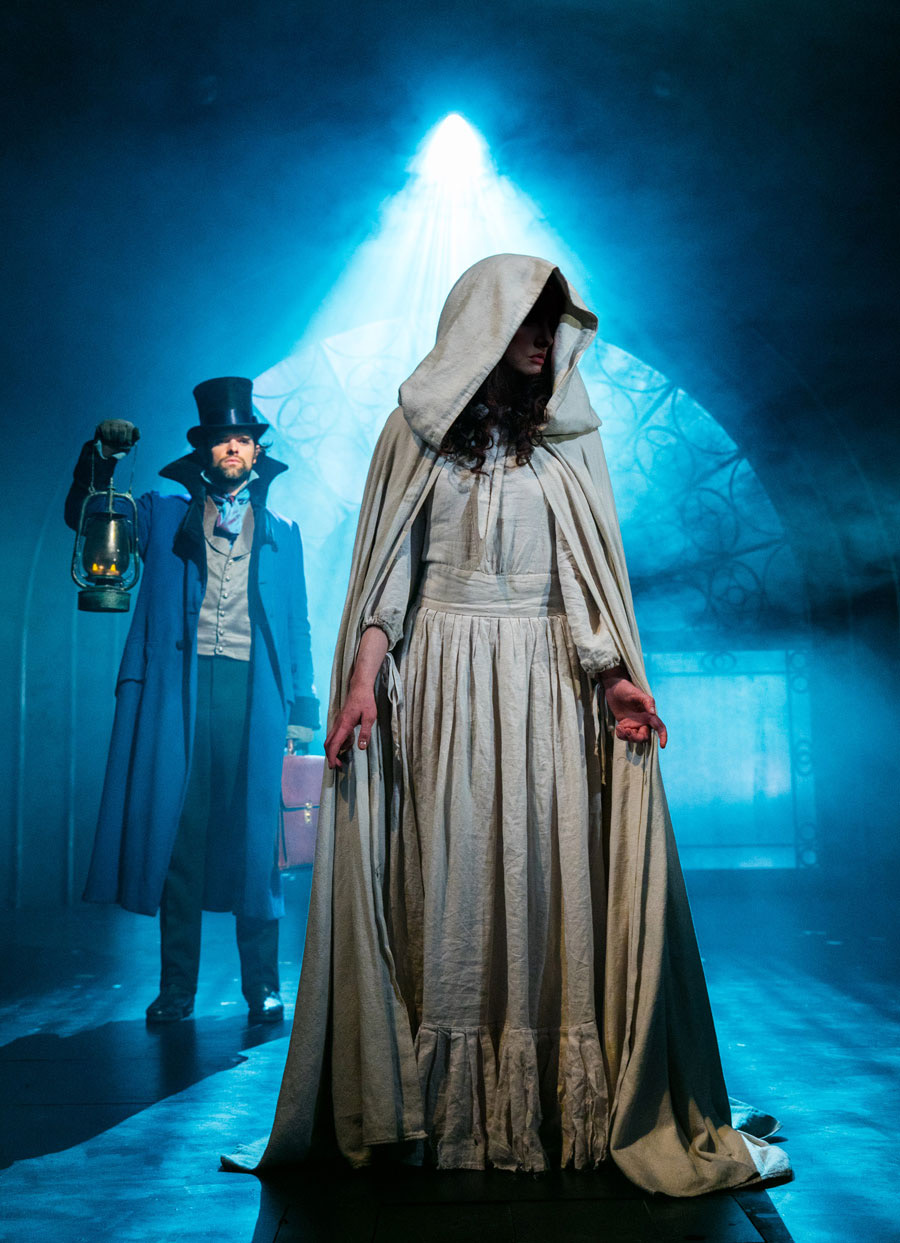It’s good to see a grandiose, gothic musical – not particularly successful by Andrew Lloyd Webber standards when it first aired in 2004 – scaled down and given vibrant new life. It now uses an ensemble cast of three (plus a child) supporting seven principals accompanied by a nine piece band – and it works a treat under Thom Southerland’s direction.
Charlotte Jones’s book simplifies the action of Wilkie Collins’s complex and convoluted novel and makes the story pretty clear as we see Laura Fairlie coaxed away from the love of her life into a “good” marriage which, of course, is anything but. Eventually, as you’d expect, good triumphs over evil and most characters, with one notable exception, are either happy or have got their just deserts by the end.
David Cullen’s “supervised orchestrations” of Andrew Lloyd Webber’s music are both beautiful and wide ranging. Often lyrical and beautifully sung in close harmony, the music is also frequently dramatic. The lyrics (by David Zippel) are imaginative too and often funny after the style of WS Gilbert.
Carolyn Maitland is magnificent as Marian Holcombe, Laura’s supportive half-sister. She ranges from witty, flirtatious and insouciant to full belt weeping. She finds admirable resolution in her character and sings like a nightingale especially in her duets with Laura (Anna O’Byrne) and trios with Anne Catherick (Sophie Reeves) who haunts the plot with her secret before we eventually reach that time honoured plot device of who fathered whom.
Chris Peluso is all too plausible as caddish, dangerously attractive Sir Percival Glyde, the totally amoral, gambling, violent husband who wants Laura’s money. Ashley Stillburn, as the contrasting good guy, is warm, troubled, determined. Both men sing well.
Even more striking is Greg Castiglioni as charismatic Count Fosco, a character often made utterly grotesque in dramatisations of Collins’s novel. Castiglioni makes him deceptively charming as he schemes subtly and, for a long time, dupes the women.
High spots in this enjoyable, touching show – which stresses, and objects to, the expected, unquestioning subservience of women in the mid nineteenth century – include the Rossini pastiche number You Can Get Away With Anything. Then there’s the skeleton piano which Laura and others “play” and a pretty dance at the wedding too choreographed by Cressida Carré. And the emphasis on trains, new in Collins’s time, is good. Rural stations are, lonely mysterious places at night and trains are powerful smoke belching dragons when comeuppance is required.
Review by Susan Elkin



